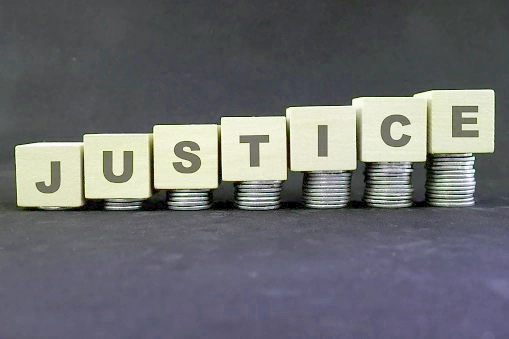If you or a loved one has been injured as a result of another person’s negligence, you may wish to pursue legal action against the responsible party. It can be a difficult process, but it does not have to be.
One of the most common barriers to contacting a law firm is the misconception that New York personal injury lawyers are expensive or charge hourly fees that must be paid in advance. Fortunately, a contingency fee agreement can help make legal services available to anyone who requires them.
What are contingency fees?
Simply put, a contingency fee agreement serves as a safety net for clients who work with a lawyer. Your attorney will only be paid if you win your case under a traditional contingency fee arrangement. You would not owe your lawyer anything if you lost your case.
Contingency fee agreements are an excellent option for clients who cannot afford attorney fees but have a strong case to present in court. A person’s financial situation should never be used to determine their ability to seek justice or retain quality legal services.
How much is a standard contingency fee?
Contingency fees can vary greatly depending on the circumstances of each case. Most lawyers who work on a contingency fee basis will earn an agreed-upon percentage of the funds awarded to their client if the case is successful. Contingency fee percentages can range between 20 and 50%.
What kind of case is a contingency agreement good for?
Contingency fees are not appropriate in all legal cases or situations. Personal injury, medical malpractice, and civil cases are the three most common types of cases in which clients and their attorneys use contingency fees. This is because such cases typically seek a monetary settlement in which the defendant, or responsible party, pays the complainant an agreed-upon amount for the damages caused.
Personal injury
Personal injury cases can be brought before a court for a variety of reasons. A personal injury claim is essentially any situation in which a person is injured as a result of someone else’s negligence. This could include:
Not all personal injury cases are straightforward. Your attorney can provide you with appropriate legal advice and advise you on whether or not you have a strong enough case to bring before the court. Finally, the court will decide whether your injury meets the legal standards for compensating you for economic or noneconomic damages.
Medical malpractice
Medical malpractice cases are similar to personal injury cases, but they are caused by negligence on the part of a healthcare professional or organization. However, in order to file a medical malpractice claim against a doctor, hospital, or other involved parties, three criteria must be met to ensure that the injury was caused by malpractice rather than by good-faith medical advice or treatment.
- The standard of care was violated.
- Negligence caused the injury.
- Damages resulting from the injury
The types of incidents that can meet these criteria, depending on the circumstances, include, but are not limited to:
- Unnecessary surgery, performing surgery on the wrong site, or an error during surgery
- Discharging a patient too early or not providing proper aftercare
- Prescribing the wrong medication or an inappropriate dosage of a medication
- Failure to order testing or improperly handling laboratory results
Civil cases
Court cases are classified into two types: criminal cases and civil cases. Personal injury and medical malpractice suits are both civil cases; however, civil cases as a whole can encompass a much broader range of situations and damages, such as:
- A wrongful act that resulted in physical injury or damage to one’s property or reputation
- A request to the court to enforce an action or prevent an action from being taken
- A breach of contract to perform a job, deliver a product or service or pay what is owed
- A claim by a landlord to evict a tenant or by a tenant against a landlord
Contingency fees are not appropriate in some legal situations. Lawyers who represent criminal defendants or one party in a divorce typically do not work on a contingency fee basis. Particularly in criminal law cases, there may be no monetary compensation for which the attorney can earn a percentage. Many states make it illegal to charge a contingency fee in these types of cases.
Benefits of Using a Contingency Fee Agreement
Justice for all
The ability to afford effective legal representation should not be a barrier to holding another party accountable for damages. Personal injury and medical malpractice claims are life-changing events for the victim and their loved ones, and they should not have to bear the consequences of someone else’s irresponsible behavior. Contingency fees enable anyone, regardless of financial circumstance, to seek compensation for their injuries without fear of going into debt or worsening their financial situation.
The attorney bears some of the risks
It is also advantageous for clients when their attorney has a vested interest. If the attorney only stands to gain financially from the case, they will be more motivated to devote their time, attention, and resources to their client.
Ease your mind
Working on a contingency basis with an attorney can also provide the client with peace of mind. You can relax, knowing that you will not be charged an hourly fee or other legal costs for the work done by your attorney if they are unable to win your case. This can be a real relief for clients who would otherwise be unable to afford their lawyer’s hourly fee.
Is there a downside to contingent fees?
Odds of a successful outcome
Clients are sometimes wary of working with a lawyer on a contingency fee basis, believing that there must be a catch. Similarly, attorneys may be hesitant to enter into a contingency fee agreement, particularly if the potential client has a complicated case or the defendant lacks a clear liability that could result in a settlement agreement.
Trusting your attorney
Some argue that working on a contingent fee basis will encourage the attorney to settle too quickly or for too little money. To avoid this, clients should work with a lawyer they can trust. You want an attorney who will fight for the best outcome, not the quickest way to get money in their pocket.
High fee percentages
Some clients find it difficult to swallow the idea of paying up to half of their settlement money to their lawyer. If the attorney will only agree to a high percentage fee agreement, paying an hourly fee rather than a contingency fee may make more financial sense.
However, an attorney should not charge extortionate contingency fees for their services. Higher fees are typically charged for complex cases that will require a significant amount of time and effort to bring before the court.
If you are dissatisfied with the contingency fee percentage proposed by your attorney, inquire whether they are willing to accept a lower percentage or provide any financial assistance. If they refuse to budge, you are not required to work with that attorney. You are free to contact other law firms to see if another lawyer would be willing to take your case for a lower fee.
Other Fees to Consider
Even if you are working with an attorney on a contingency fee basis, you may be responsible for additional fees. This includes filing fees in court, discovery costs, expert witnesses, and other expenses.
This is significant when negotiating the contingency fee agreement with your lawyer. Because your agreement may provide for the litigation costs to be deducted from your settlement before or after you pay these other fees.
If the attorney is paid based on your monetary compensation before paying these fees, they will receive a larger portion of your earnings than if they are paid after paying all of the other fees.
What to Do if You Think You Have a Personal Injury, Medical Malpractice, or Another Civil Claim
First and foremost, if applicable, you should seek professional medical attention right away. It is not only important to attend to any physical injuries, but it is also beneficial for any case to have official documentation of what happened.
Following that, be your own best advocate. Make your own documentation of the situation to ensure that your account of the other party’s negligence is written in your own words as it occurs or shortly afterward.
Finally, contact a law firm or a trusted attorney as soon as possible. Because time is of the essence, retaining legal counsel and initiating the litigation process as soon as possible can make or break your case. Waiting too long may result in the loss of critical evidence, witnesses, and documentation that could make or break the case presented in court.
Is a contingency fee agreement right for you?
The bottom line is that each situation is unique. A contingency agreement is not appropriate in every case. There are numerous factors that both the client and the attorney should consider before deciding that a contingent fee is the best option.
When considering working with a lawyer on a contingency fee basis, the most important consideration is finding someone you can trust. Working with an attorney or law firm that is experienced in the type of case you want to bring to court can help.
There are numerous firms that specialize in specific types of cases, such as personal injury, medical malpractice, and civil law, among many others. Choosing a law firm or attorney who understands the intricacies of your specific type of case can make a significant difference in not only winning your case but also receiving the settlement that you deserve.
Choose Gregory Spektor & Associates
It can be difficult to find a lawyer while navigating everything else that comes with an accident caused by a negligent party. Our experienced team at Gregory Spektor & Associates is here to make your life as simple as possible.
We’ve not only seen it all when it comes to personal injury law, but we’ve also won it all. Our team knows how to bring justice to our clients who have suffered unnecessarily.
We’re always happy to talk about your situation and the possibility of working on a contingency fee basis. Contact our office today to get one step closer to getting what you deserve and holding those responsible accountable for their mistakes.



